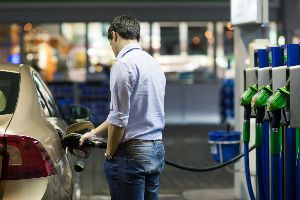Posted on 7/27/2021

While emergency repairs get you back on the road after auto failure or an accident, routine auto maintenance will help deter malfunctions. While modern cars can be driven for long periods between servicing, they benefit from periodic tune-ups to keep their essential systems and components in peak condition. Use the following guide to determine if your ride is due for a tune-up. How to Know When to Service Your Vehicle 1. Frequent Stalling Stalling, which occurs when the engine stops unexpectedly, can be due to insufficient air or fuel intake, electrical problems, or failed engine components. All cars stall occasionally, and restarting the engine is usually enough to resolve the issue. However, if your vehicle stalls frequently at intersections or when accelerating, schedule auto maintenance immediately. 2. Poor Fuel Economy A wide range of factors affects fuel efficiency, from the wheel alignment to the car’s electrical s ... read more
Posted on 4/12/2021
Extended Auto Warranty While it may sound like a good idea to purchase an extended warranty for your vehicle, they often come with a high price tag and don't necessarily cover repairs that are needed. Plus, many consumers who buy extended warranties never use them. In that case, an extended warranty becomes a cost with no financial return. Extended warranties do not cover scheduled maintenance such as oil changes, timing belt replacements or tune-ups. Most extended warranties don't cover wear & tear items, such as brake pads and windshield wipers. Our experience is that warranty companies have a hard time with pricing in different areas of the United States that they cover. We here in Hawaii have a higher cost of living so our parts cost more & we charge a higher labor rate to survive. Warranty companies are mostly not willing to consider this & make it hard for the consumer to find a reputable repair shop to cover the repairs. Consumers should do their research b ... read more
Posted on 2/9/2021
High Octane Fuel Myth or Fact? Unless your engine is knocking, buying higher octane gasoline is a waste of money. Premium gas costs 15-20 cents per gallon more than regular.. Studies indicate that altogether, drivers may be spending hundreds of millions of dollars each year for higher octane gas than they need. It may seem like buying higher octane “premium” gas is better for engine performance, but take note: the recommended gasoline for most cars is regular octane. If you car recommends regular fuel than putting a higher octane will be a waste of money. It won't make your car perform better, go faster, get better mileage, or run cleaner. The only time you might need to switch to a higher octane level is if your car engine knocks when you use the recommended fuel. This doesn’t happen too often. But if it does, than put a higher grade. What are octane ratings? Octane ratings measure a gasoline's ability to resist engine knock — a rattlin ... read more
Posted on 1/8/2021
What Causes the Car AC to Smell Bad? Moisture Your vehicle’s AC system does not actually create cold air. The AC system takes heat and moisture out of the air that is outside of your car, which in turn, makes it feel much cooler than the air around you. Hot air flowing into the unit can create moisture pockets that surround the condensing unit in your AC system. This may create small pools of water that are drained outside of the car. However, if moisture becomes stuck or for whatever reason cannot find its way out of the AC unit, by drainage or evaporation, the water will pool inside the unit and around the coils creating moisture inside of the AC unit. Mold AC systems collect moisture which creates mold. The air that passes through the evaporator and the units’ mold build-up will carry the foul smell inside of your car through your dash vents. Mold is the most common culprit for causing smells to come out of your cars’ AC. As a vehicle gets older, bacteria, mold, an ... read more